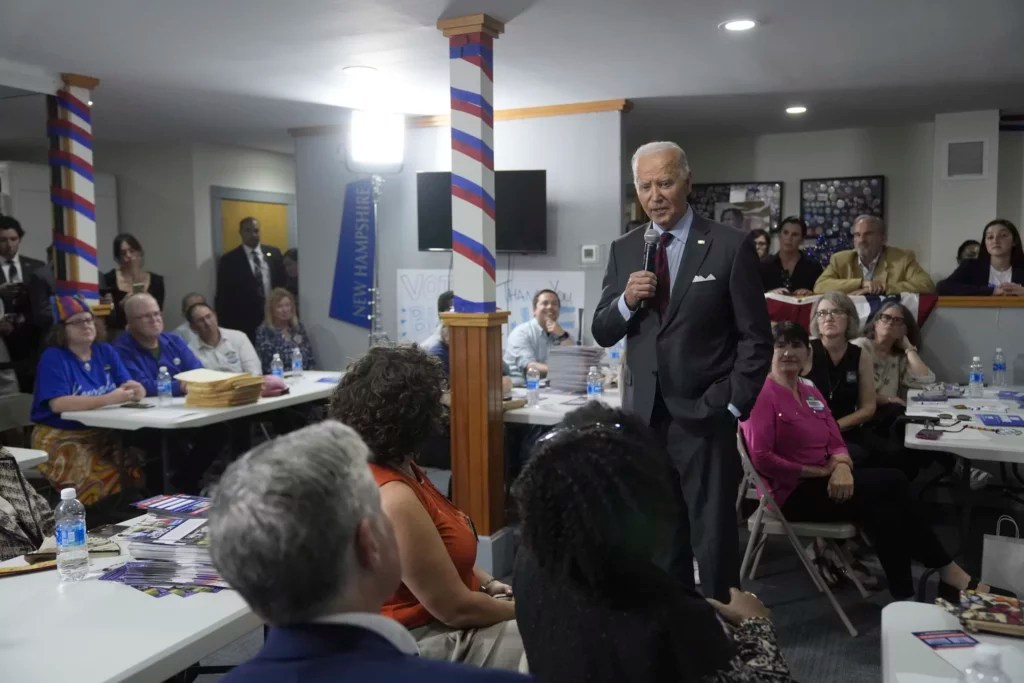3 Recent Failures of Green Energy Policies

Upon taking office in January, many of President Biden’s first executive orders related to climate policy.
Whether it was re-joining the Paris Climate Agreement, or canceling the Keystone XL pipeline, the Biden administration has been clear in their desire to expand the United States’ use of ‘Green Energy.’
Though the President has insisted that transitioning to green energy will “create well-paying union jobs,” “build a modern and sustainable infrastructure,” and “deliver an equitable, clean energy future,” Americans were reminded over the past week that the path to green energy is by no means smooth.
Here are three examples of ambitious renewable energy policies that failed miserably, destroying jobs and risking lives in the process.
Texas
Millions were left for days without power, water, and heat following unprecedented winter weather in the Lone Star State — a situation driven by failure within the electric grid, including the malfunction of nearly half of the state’s wind turbines.
The Austin American-Statesman reported on Sunday that low temperatures and icy conditions ground Texan windmills to a halt. These windmills “comprise 12,000 megawatts of Texas’ installed wind generation capacity, although those West Texas turbines don’t typically spin to their full generation capacity this time of year.”
Over the past five years, Texas has grown increasingly reliant upon wind energy. In 2015, wind represented 11% of the state’s energy portfolio. In 2020, it was 23%.
On Monday evening, Fox News anchor Tucker Carlson pointed out the failures of ambitious wind policies during his prime time program.
“Running out of energy in Texas is like starving to death at the grocery store,” noted Carlson. “You can only do it on purpose, and Texas did.”
“Rather than celebrate and benefit from their state’s vast natural resources, politicians took the fashionable route and became recklessly reliant on so-called alternative energy, meaning windmills,” he added. “The windmills failed like the silly fashion accessories they are, and people in Texas died.”
Rep. Alexandria Ocasio-Cortez (D-NY), however, believes that Texas’ green energy policies are not extensive enough.
“The infrastructure failures in Texas are quite literally what happens when you *don’t* pursue a Green New Deal,” she tweeted. “Weak on sweeping next-gen public infrastructure investments, little focus on equity so communities are left behind, climate deniers in leadership so they don’t long prep for disaster.”
California
Thanks to its insistence on employing green energy solutions, blackouts are a relatively common occurrence in the Golden State.
In the summer of 2020, California — which boasts an economy nearly as large as Germany’s and is home to America’s largest technology innovators — experienced power outages due to a heatwave that strained the electric grid. As with the situation in Texas, much of the problem in California was attributable to renewable energy.
The California Independent System Operator — which runs the state’s grid — decided to turn off power due to a lack of available supply. The problem was worse in the evenings, when the state’s extensive network of solar farms began to shut down.
Environmental Protection Agency Administrator Andrew Wheeler used the situation as grounds to criticize Gov. Gavin Newsom (D-CA) after he tried to ban the sale of gas-powered cars by 2035.
“Beyond the significant questions of legality and the fact that consumer demand for the type of vehicle you would mandate has never met the aspirations of California’s political leadership, your state is already struggling to maintain reliable electricity for today’s demands,” Wheeler said in a letter to the Democratic governor. “California’s record of rolling blackouts — unprecedented in size and scope — coupled with recent requests to neighboring states for power begs the question of how you expect to run an electric car fleet that will come with significant increases in electricity demand, when you can’t even keep the lights on today.”
“While it is tempting for federal or state agencies to regulate with a particular technology in mind, it is far more productive to provide innovators the freedom to develop the technologies of tomorrow,” he added.
Australia
After it passed an aggressive carbon tax, the Land Down Under experienced economic calamity so severe that it was forced to repeal the tax entirely.
The Labor party passed the Clean Energy Act in 2011, implementing a carbon tax at a rate of 23 Australian dollars (AUD) per ton. The rate rose to 24 AUD in the next year, and facilities emitting more than 25,000 metric tons of carbon dioxide annually were subjected to additional regulation.
The legislation originally sought to “support the development of an effective global response to climate change” and “put a price on greenhouse gas emissions in a way that encourages investment in clean energy, supports jobs and competitiveness in the economy, and supports Australia’s economic growth while reducing pollution.” However, the policy almost immediately achieved the opposite.
One economist found that household electricity prices rose by 15% within the first year of the legislation’s passage. Up to 19% of Australian households’ energy expenses were the direct result of the new act and its accompanying regulations. Unemployment and business closure rates promptly skyrocketed as a consequence.
The Australian government had no choice but to repeal the carbon tax in 2014, saving Australian families an average of 550 AUD per year.
The views expressed in this piece are the author’s own and do not necessarily represent those of The Daily Wire.
The Daily Wire is one of America’s fastest-growing conservative media companies and counter-cultural outlets for news, opinion, and entertainment. Get inside access to The Daily Wire by becoming a member.
" Conservative News Daily does not always share or support the views and opinions expressed here; they are just those of the writer."




